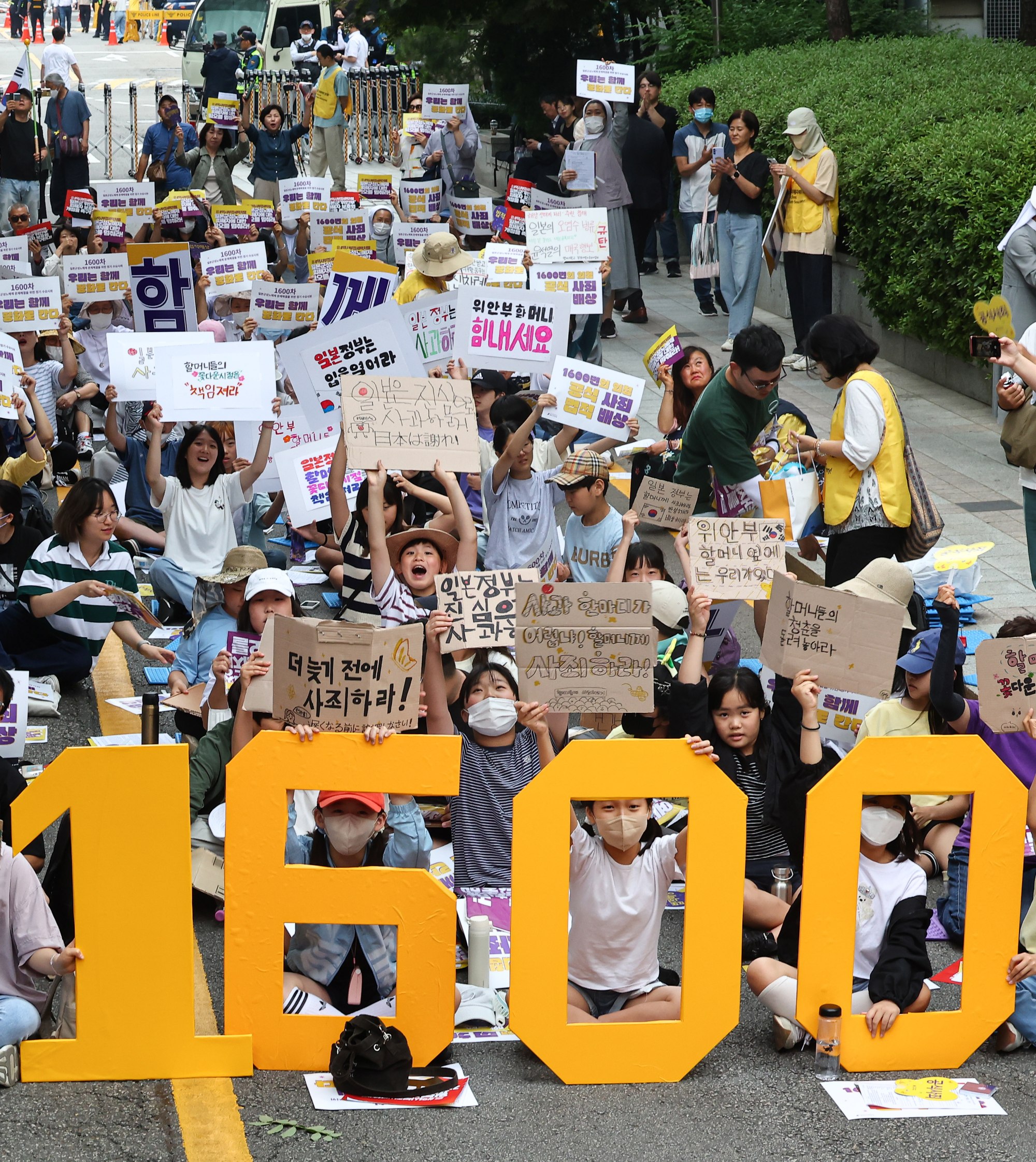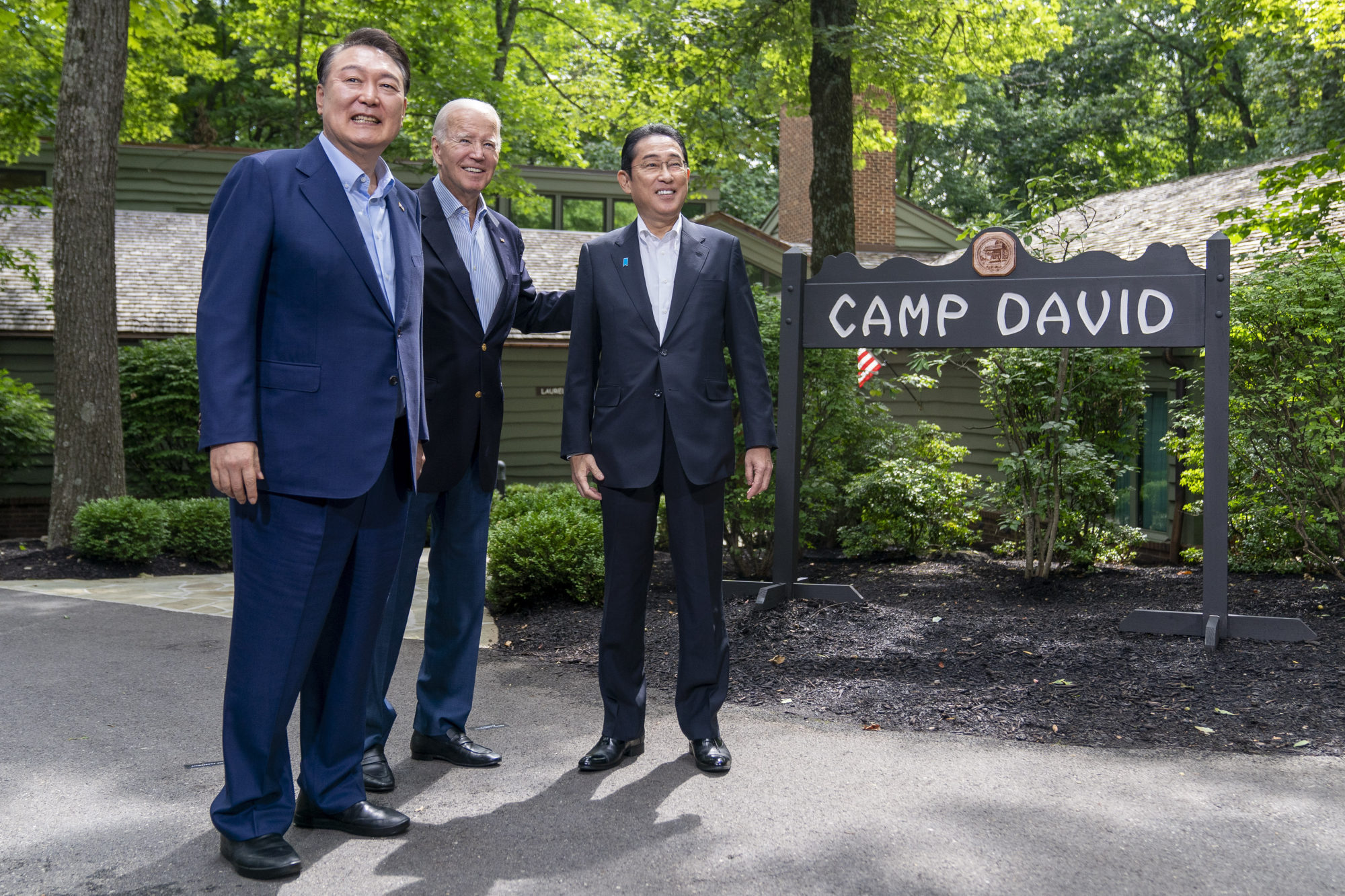Yoon’s hopes to further enhance the relationship were outlined in comments by a senior official from his office to foreign and domestic media earlier this month. Japan’s Yomiuri newspaper reported on March 13 that the official said Yoon hoped to visit Japan and that Seoul wanted to build on the 1998 Japan-Republic of Korea Joint Declaration, which outlined a future-oriented relationship.
Officially, there has been no comment from Tokyo on the outreach from Seoul, but it is known that the two sides have been in discussions on a range of topics, including official visits.
Analysts caution, however, that while Tokyo favours better security and trade ties with its near-neighbour, it remains wary out of concern that any new administration after Yoon could walk back – or even walk away from – an agreement.
Four years later, under a new government in Seoul, the foundation was dissolved and the agreement effectively annulled.
“The Japanese government, I think, is going to be very wary,” said Ryo Hinata-Yamaguchi, an assistant professor of international relations at the University of Tokyo.
Japan was concerned that a new agreement could be seen as a renegotiation of the 1965 pact that normalised diplomatic relations, two decades after Japan’s defeat in World War II, which saw Tokyo pay US$300 million in compensation, he said.

“Japan is also probably worried that a new Korean government could go back on any deal, just as they did on the ‘comfort women’ agreement in 2019,” Hinata-Yamaguchi said. The difference is one of perception, he suggested.
“Japan says historical issues have been settled, but South Koreans say they are only just getting started on negotiations and many there say Japan has been let off the hook far too easily,” he said.
A patch of seabed may scuttle warming Japan-South Korea ties. Here’s why
A patch of seabed may scuttle warming Japan-South Korea ties. Here’s why
“There is a real shortage of mutual political confidence at the moment, and that is critical to the future-looking relationship that is being talked about,” Hinata-Yamaguchi said.
“As long as Yoon is in power, there is the potential for Japan and South Korea to work together and marking the 60th anniversary is one positive way of doing that,” he said. “But the question is over the long-term stability of security and political cooperation.”
With Yoon already halfway through his single five-year term as president, Ascione said it was “quite unlikely” that any other president would be willing to tackle the “comfort women” and forced-labour issues the way Yoon had.

“The question is the degree to which the relationship can be institutionalised so that it does not in the future rely on the Japanese prime minister or South Korean president of the day,” Ascione said. “If it can be firmly embedded in every level of government, but particularly the foreign and security ministries, that it cannot be easily unravelled after Yoon leaves office.”
Ultimately, however, he agreed with the assessment that good work can be easily and very quickly undone by an unguarded comment or action by Japanese and South Korean politicians stirring up animosities over history for short-term political gain.



.jpg&h=630&w=1200&q=75&v=20170226&c=1&w=350&resize=350,250&ssl=1)












:max_bytes(150000):strip_icc()/flight-attendant-end-of-year-picks-tout-a85cbff14f244439ab38dc6375e212e4.jpg?w=120&resize=120,86&ssl=1)



